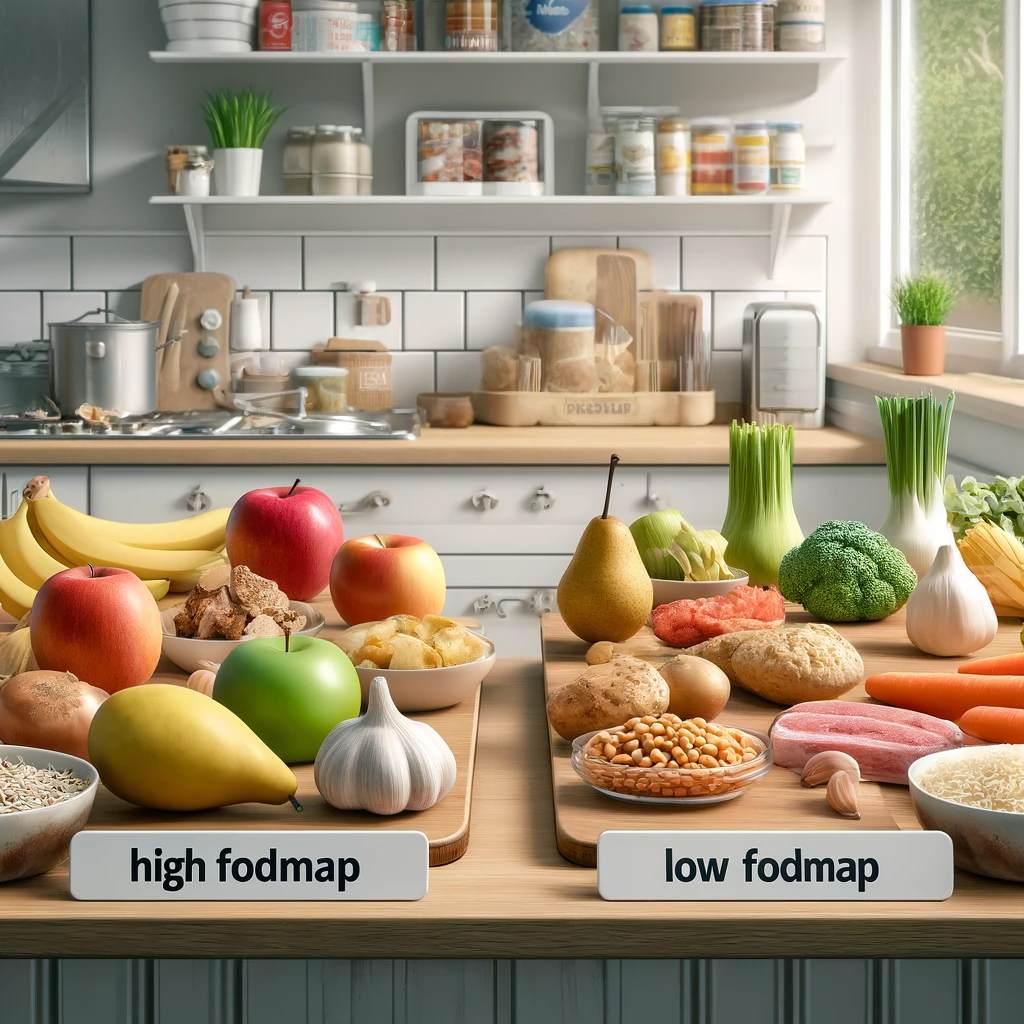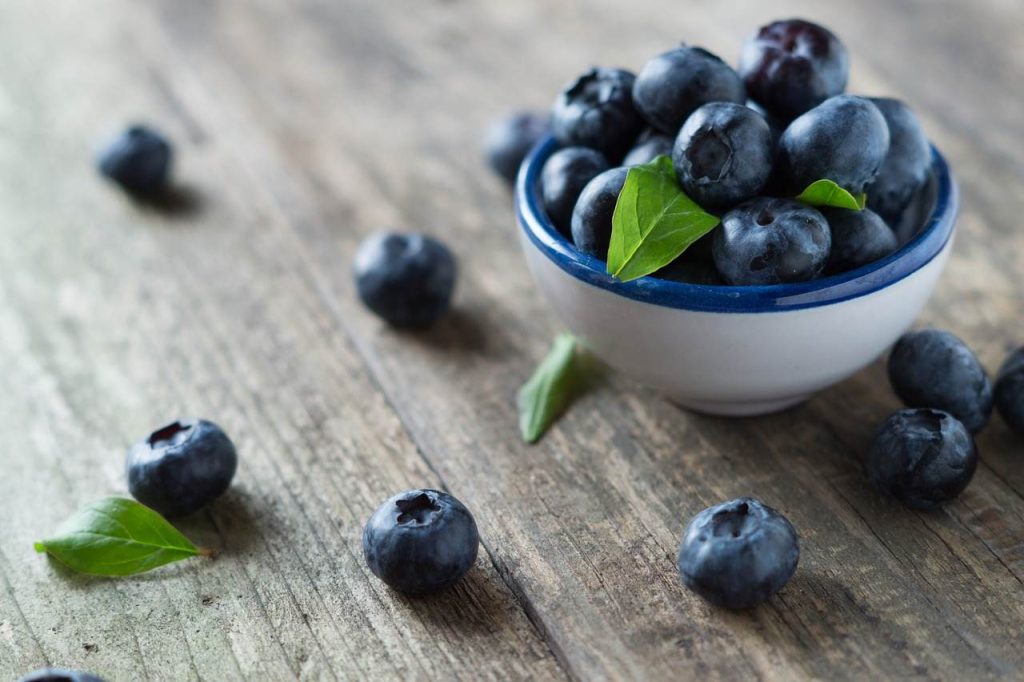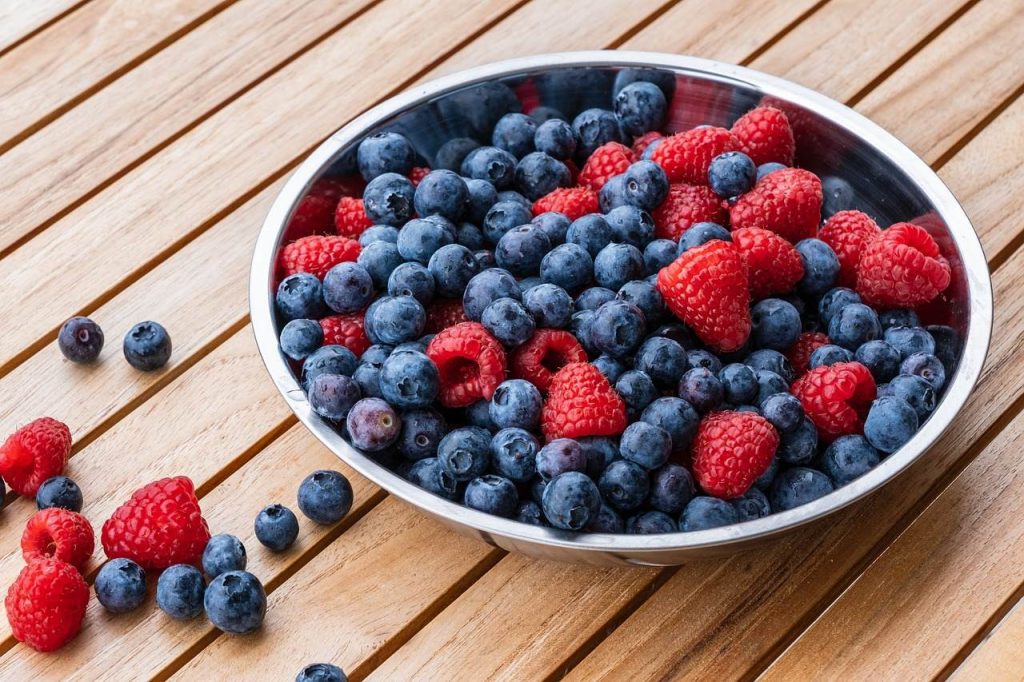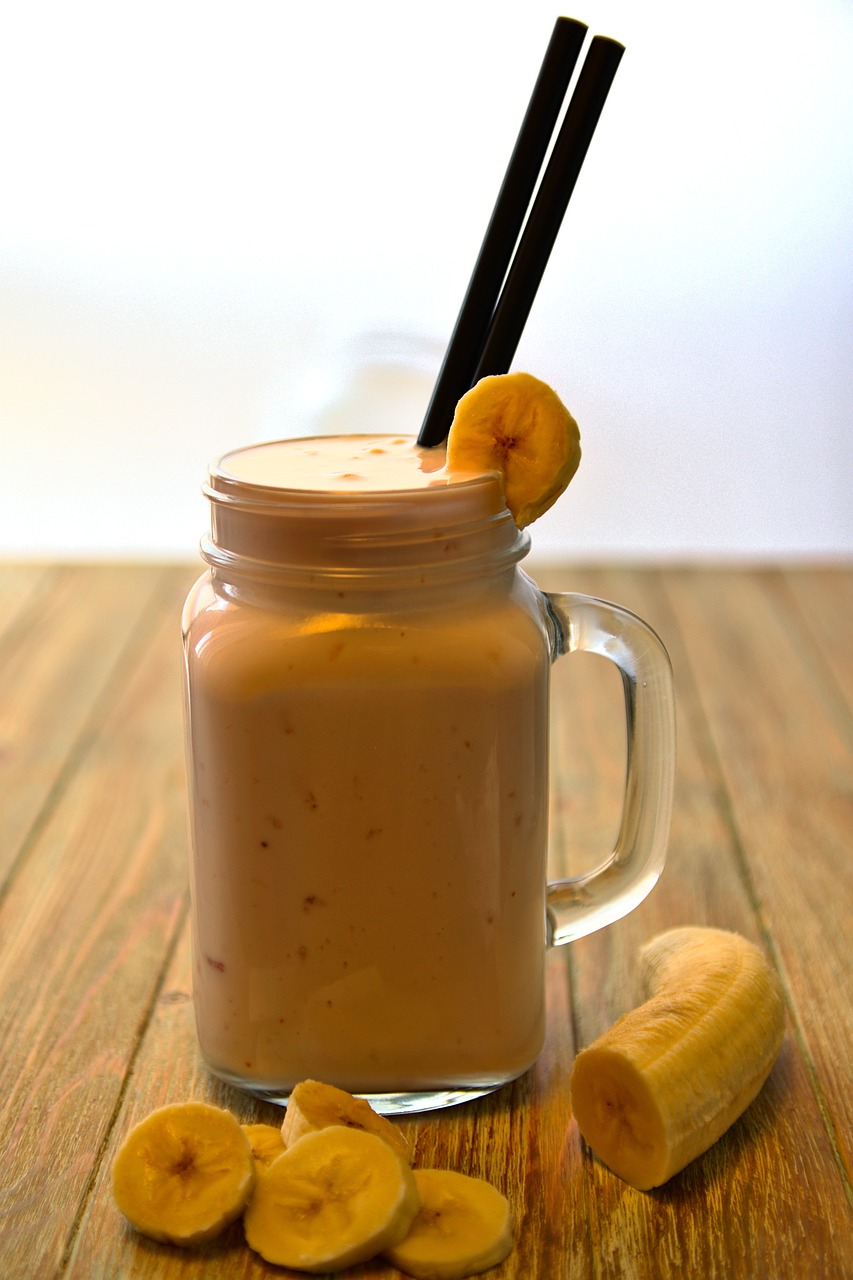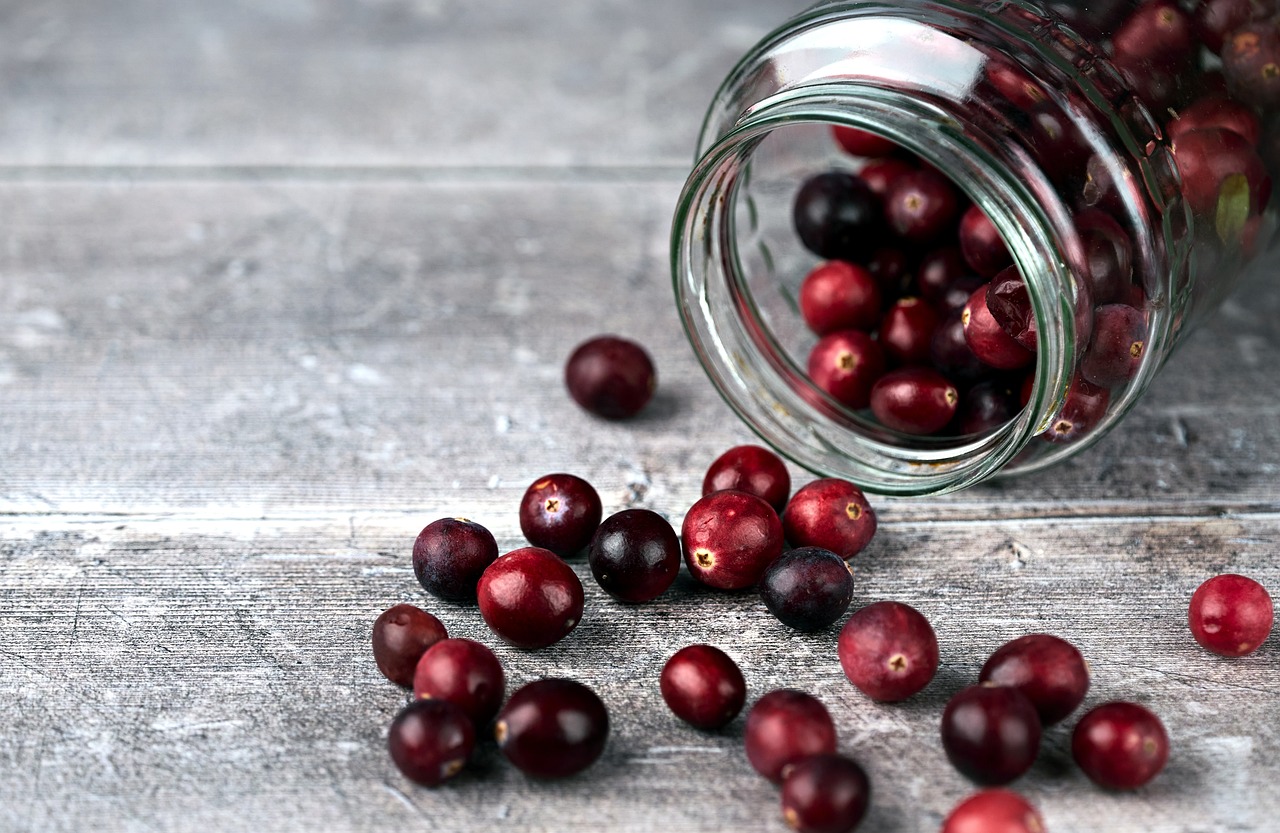In this article, I talk about blueberries and how they fit into a low FODMAP diet. I explain here why some fruits can be tricky for people on this diet.
I’ll discuss if blueberries are a low food map and if they are okay to eat. Plus, I’ll share easy ways to add them to your meals and snacks. Lastly, I’ll cover any precautions or side effects to watch out for.
Let’s get started!
Understanding FODMAP
Before we get into blueberries and FODMAPs, let’s understand what FODMAPs are. FODMAP is short for Fermentable Oligosaccharides, Disaccharides, Monosaccharides, and Polyols. These are types of carbs and sugar alcohols that the body struggles to absorb well.
For people with conditions like Irritable Bowel Syndrome (IBS), these FODMAPs can cause uncomfortable symptoms like bloating, tummy pain, diarrhea, or constipation. By following a low FODMAP diet, folks can figure out which foods trigger their symptoms and cut them out to feel better.
What is FODMAP?
FODMAPs are kinds of carbs and sugar alcohols that gut bacteria can ferment, which can cause problems like bloating, gas, and tummy discomfort. They’re in lots of foods, like fruits, veggies, grains, dairy, and sweeteners.
The main types of FODMAPs are fructose, lactose, fructans, galactans, and polyols. These can be tough for the body to break down and absorb, leading to not-so-fun symptoms for some people.
The Role of FODMAP in Digestive Health
Having FODMAPs in your diet can cause all sorts of tummy troubles, especially for people with sensitive stomachs. FODMAPs can pull water into the intestines and ferment in the gut, which causes gas and bloating. For folks with conditions like IBS, this can lead to pain and discomfort.
However, cutting down on or avoiding high-FODMAP foods can often help ease these symptoms and make life better. Still, it’s important to know that not everyone reacts the same way to FODMAPs, and some folks might handle small amounts of certain high-FODMAP foods just fine.
Are Blueberries Low FODMAP?
Absolutely! If you’re following a low FODMAP diet, you can enjoy blueberries safely. Just keep an eye on your portion size – it’s best to stick to around 20 berries, which is about 28 grams.
What Serving Size Of Blueberries Can be Classed As Low FODMAP?
A serving of 20 blueberries, which is about 28 grams, has low amounts of FODMAPs. This means it should be easier for most people with IBS to digest without any problems.
However, it’s important not to have larger servings, like more than 60 grams, because they contain higher levels of a type of carbohydrate called Oligos-fructans, which can cause discomfort for some people with IBS. So, stick to the recommended serving size to avoid any issues.
Nutritional Profile of Blueberries
Blueberries are praised for being full of good stuff like vitamins C and K, and minerals like manganese. They’re also loaded with antioxidants, which are great for fighting off harmful stuff in your body.
Besides that, blueberries have fiber, about 3 grams in a cup. Fiber is super important for keeping your digestive system healthy and making sure you go to the bathroom regularly. But here’s the thing: the fiber in blueberries doesn’t affect whether they’re high or low in FODMAPs.
So, even though they’re good for you, you still need to watch how much you eat if you’re following a low FODMAP diet.
FODMAP Content in Blueberries
Blueberries are generally okay to eat if you’re on a low FODMAP diet, but they do have some compounds that could cause issues for some people. These compounds are called fructose and polyols, and they might give you symptoms if you eat a lot of blueberries.
According to the Monash University Low FODMAP Diet App, you can have up to ¼ cup of blueberries without worrying too much about FODMAPs. But if you eat more than that, you might be getting too much of those compounds.
It’s different for everyone, though. Some people can eat blueberries without any problems, while others might need to be more careful or avoid them altogether.
The amount of FODMAPs in blueberries can change depending on things like how ripe they are or how they’ve been stored. Riper blueberries usually have more fructose, and polyol levels can go up if the berries have been sitting around for a while.
If you’re trying to figure out if blueberries are okay for you, start with a small amount and see how you feel. Keeping track of what you eat in a food diary can help you spot any patterns or triggers.
There are other options, too, if you’re worried about FODMAPs. Frozen blueberries, for example, tend to have fewer FODMAPs than fresh ones. And there are blueberry-flavored products like extracts or jams that might be easier on your stomach.
Benefits of Blueberries in a Low FODMAP Diet
Blueberries might have a small amount of FODMAPs, but they’re still really good for you, especially if you’re on a low FODMAP diet. Here’s why:
Helping Your Tummy: Blueberries have lots of fiber, which is super important for keeping your digestive system happy and healthy. Eating blueberries can help you go to the bathroom regularly and avoid getting constipated.
Blueberries also have special natural stuff in them that can fight inflammation and help the good bacteria in your gut grow. This is really good for your digestion and can make you feel better overall.
Some studies even say that blueberries could help protect your tummy from problems like irritable bowel syndrome (IBS) or inflammatory bowel disease (IBD). The antioxidants and other good stuff in blueberries can calm down inflammation in your gut and make symptoms feel less bad.
Plus, blueberries have prebiotics, which are like food for the good bacteria in your gut. These good bacteria, called probiotics, help keep your gut healthy and make sure your body can use all the nutrients from your food.
Other Health Benefits of Blueberries
Blueberries aren’t just good for your tummy – they’re also packed with goodness for your whole body! Here’s why:
1. Protecting Your Heart
Blueberries are loaded with antioxidants, like anthocyanins, that fight off harmful stuff in your body called oxidative stress. This stress can lead to serious diseases like heart problems and cancer.
But eating blueberries can help lower your risk of heart disease by improving your blood pressure, lowering the bad cholesterol in your blood, and keeping your good cholesterol safe from damage. That means a healthier heart and less chance of heart-related issues!
2. Boosting Your Brain
The antioxidants in blueberries aren’t just good for your heart – they’re also great for your brain!
Studies show that these antioxidants can improve how your brain works, keep your memory sharp and even lower your risk of brain-related problems as you get older, like Alzheimer’s and Parkinson’s diseases. So, snacking on blueberries can help keep your brain in top shape!
3. Keeping Your Blood Sugar in Check
If you have diabetes or just want to keep your blood sugar levels steady, blueberries are a smart choice. They’re rich in fibre and antioxidants, which help keep your blood sugar levels stable. That means you won’t have those big spikes and crashes in your energy levels throughout the day.
Remember, even though blueberries are low in FODMAPs, it’s still important to watch how many you eat at once. Eating too many in one go can still add up and affect your FODMAP levels.
So, enjoy your blueberries, but in moderation! If you’re unsure about how many to eat, it’s always a good idea to talk to a doctor or dietitian for personalized advice.
Incorporating Blueberries into a Low FODMAP Diet
Now that you know how great blueberries are for your low FODMAP diet, let’s talk about some easy ways to add them to your meals and snacks.
Yummy Low FODMAP Blueberry Recipes
You can use blueberries in lots of tasty recipes that fit your low FODMAP diet. Here are a few ideas to get you started:
1. Low FODMAP blueberry smoothie: Blend up some blueberries with lactose-free yogurt, a banana, and some almond milk for a refreshing and nutritious smoothie.
2. Blueberry and almond overnight oats: Mix blueberries with gluten-free oats, almond milk, and a sprinkle of almonds for a delicious and filling breakfast option.
3. Grilled chicken and blueberry salad: Mix grilled chicken breasts with fresh spinach, blueberries, and a low FODMAP dressing made with olive oil and lemon juice.
4. Blueberry chia seed pudding: Combine blueberries with chia seeds, coconut milk, and a touch of maple syrup for a tasty and nutritious dessert or snack.
Don’t be afraid to get creative and try out different recipes with blueberries. Whether you’re making a smoothie, oatmeal, salad, or pudding, blueberries are sure to add a burst of flavor and nutrition to your meals!
Tips for Buying and Storing Blueberries
When you’re picking out blueberries at the store, choose ones that are big, firm, and have a rich blue color. Stay away from berries that feel mushy or have any signs of mold.
Before you put them away, give your blueberries a quick rinse and let them dry completely. Then, store them in a closed container or a plastic bag in the fridge. This keeps them fresh by trapping in moisture and preserving their taste and texture.
Precautions and Potential Side Effects
Even though blueberries are usually okay to eat, not everyone may react the same way to them. Even though they’re considered low in FODMAPs, some people might still have issues with them.
If you feel any tummy troubles or your symptoms get worse after eating blueberries, it might be best to cut back on them or stop eating them altogether. It’s a good idea to talk to a doctor or dietitian if you’re having any problems.
Consulting a Healthcare Professional
If you have a digestive problem like IBS or you’re on a low FODMAP diet, it’s smart to talk to a doctor or a nutritionist. I have had many patients who were dealing with IBS, and with a healthy diet, we have reversed their condition.
How To Enjoy Blueberries on a Low FODMAP Diet?
- Stick to the Serving Size: Measure your portions to keep your intake within the low FODMAP threshold. A handful (40 grams) is a safe guideline.
- Pair with Low FODMAP Foods: Add them to lactose-free yoghurt, oatmeal, or smoothies made with almond milk for a satisfying breakfast or snack.
- Freeze for Convenience: Frozen blueberries retain their nutrients and are a great option for smoothies or baking.
- Use as a Topping: Sprinkle them over gluten-free pancakes, salads, or chia seed puddings for a pop of flavour and colour.
FAQ
Can I eat blueberries if I have digestive issues like IBS?
Yes, you can enjoy blueberries on a low FODMAP diet. While they contain some FODMAP compounds, they’re generally considered safe in moderate amounts. However, if you experience any discomfort after consuming blueberries, it’s advisable to reduce your intake or consult a healthcare professional.
How should I choose and store blueberries for optimal freshness?
When selecting blueberries, look for ones that are firm, plump, and have a rich blue color. Avoid berries that are mushy or show signs of mold. After rinsing and drying them thoroughly, store them in a sealed container or plastic bag in the refrigerator to maintain their freshness.
Are there any precautions I should take when eating blueberries?
While blueberries are generally safe to eat, some individuals may still experience digestive issues. If you notice any adverse reactions such as bloating or discomfort after consuming blueberries, consider reducing your intake or eliminating them from your diet. It’s always wise to consult with a healthcare professional if you have concerns.
How can I incorporate blueberries into my low FODMAP diet?
There are plenty of delicious ways to enjoy blueberries while following a low FODMAP diet. You can add them to smoothies, overnight oats, salads, or chia seed puddings. Get creative in the kitchen and experiment with different recipes to find tasty ways to incorporate blueberries into your meals and snacks!
Also Read,
- Top Fruits To Help Reduce Creatinine Levels
- The Low FODMAP Diet Plan: Get Rid of Bloating and Gas for Good
Conclusion
In short, you can eat blueberries on a low FODMAP diet because they have only a little bit of FODMAPs. They’re good for your health, especially for your digestion.
Adding blueberries to your meals and snacks is a tasty way to get their benefits while sticking to a low FODMAP diet. Just pay attention to how your body feels and adjust as needed.
Enjoy those yummy blueberries and keep your digestion happy!

